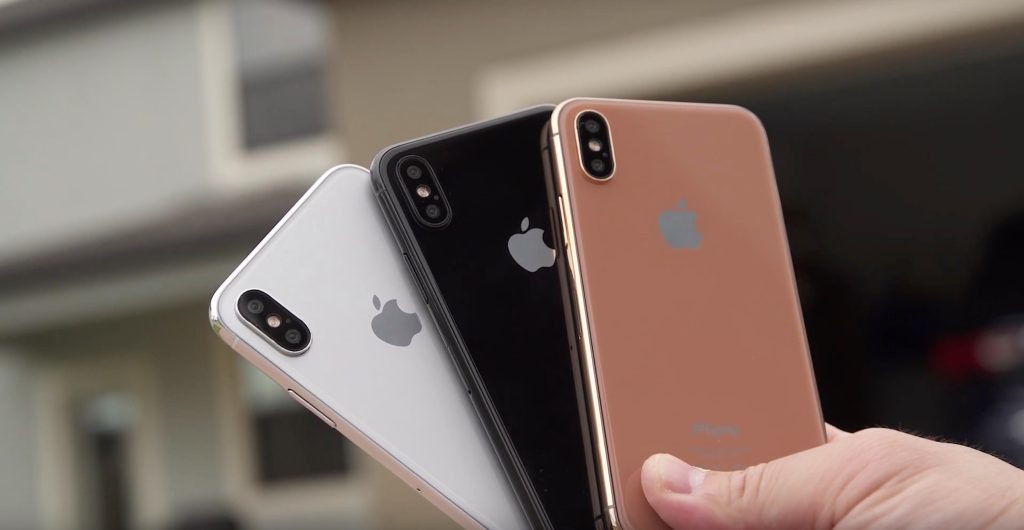Apple is planning to ramp up storage options across the board with this fall's "iPhone 8," selling 64-, 256-, and 512-gigabyte models, according to a Chinese report.
The device will also have 3 gigabytes of RAM, GeekBar claimed on Wednesday. That's at least a gigabyte less than some competing Android phones, like the Samsung Galaxy S8, but Apple has often used less RAM and worked to compensate through optimization.
The 64- and 256-gigabyte storage modules will be supplied by Toshiba and Western Digital's SanDisk, but 512-gigabyte modules will come from Samsung and SK Hynix, GeekBar said.
The latest rumor conflicts with recent claims that the iPhone 8 will ship in 64- and 128-gigabyte variants. The GeekBar scenario may be more likely, in part because of multiple reports suggesting Apple will sell configurations costing over $1,000.
The iPhone 7 and 7 Plus are available in 32-, 128-, and 256-gigabyte versions, the most expensive model hitting $969. Those devices were also Apple's first iPhones to ship with a default capacity higher than 16 gigabytes, reflecting the growing size of apps, media, and iOS.
The "iPhone 8" will likely be announced at a September press event. Its signature features are expected to be an edge-to-edge, 5.8-inch OLED display and 3D facial recognition, the latter replacing Touch ID.
 Roger Fingas
Roger Fingas


 Marko Zivkovic
Marko Zivkovic
 Mike Wuerthele
Mike Wuerthele
 Christine McKee
Christine McKee
 Amber Neely
Amber Neely
 Wesley Hilliard
Wesley Hilliard

 William Gallagher
William Gallagher










40 Comments
I am not sure why all this attention keeps getting heaped on the price of the most expensive configuration of the iPhone. Do most people choose 256GB of storage for their phone? Do most people buy the most expensive configuration of the MacBook Pro?
BTW, the most expensive factory configuration of MacBook Pro costs $4200, BTW.
Seriously, a $969 iPhone 7 Plus is already plenty expensive. What happens when you cross the imaginary line between $969 and $1000? That's just $31, isn't it?
No 128gb, Apple knows how to up sell!
Very interesting... For myself, I am frankly a bit confused about the need for "large" storage:
Not long ago the need was clear: If you used your phone for music you stored entire libraries on it. And, it you took pictures, you either stored them on your phone or made an effort to archive them onto a PC or other storage (or both).
But, Apple Music and iCloud have changed that equation: You can get all the music you want and more from Apple Music with storing even a single song on your device and store all of your picture on iCloud instead of the phone.
While the article is correct that the OS & apps are taking more storage making 16Gb simply too small to be viable, there remains a question over the need for storage greater than 32Gb or 64Gb: Is it a trade-off of initial purchase cost vs ongoing costs to maintain subscriptions to Apple Music and (large) iCloud storage?
But, all that aside, just a comment from an old-fart: for years now 512Gb was and still is the standard size for harddrives in my home computers -- and I have never filled one up. Now that size is becoming available in an iPhone? Wow! Or, another analogy: when I entered IT in 1983 we were using IBM 3350 disks that were later upgraded to double density 3380's that could hold a wopping 5 whole Gb's! (and we ran entire Fortune 100 corporations on those drives!) Some will remember the year 2000 crunch where most computer enterprise level software could not handle the year '00' and that was the reason: storing a 4 digit year was simply not feasible on disk drives that could only hold (the case or early 3350's one-third of a gigabyte. We scrutinized every single bit and byte of data that we stored.